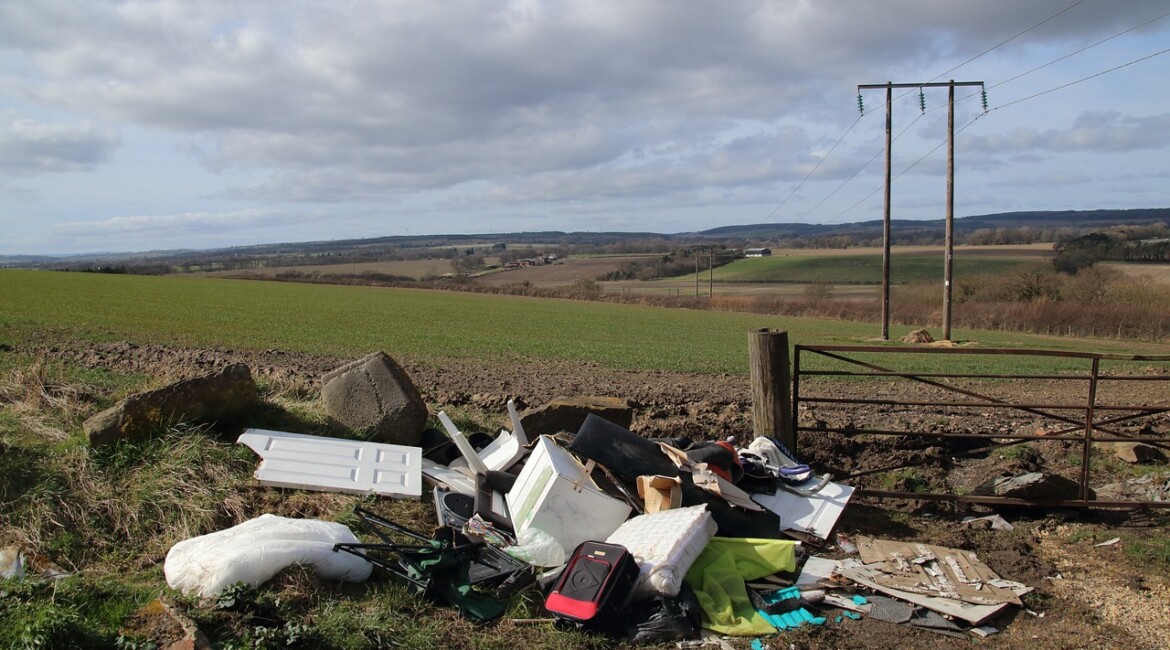
How To Prevent Fly-Tipping On Private Property With Newcomer Injunctions

What is fly-tipping?
Fly-tipping is a criminal offence that is defined as the ‘illegal deposit of any waste onto land that does not have a licence to accept it’. This can range from a few bags of rubbish to truckloads of commercial, industrial and domestic waste.
Recent news reports and government data show that fly-tipping has become increasingly problematic. This is likely due to the difficulty and costs of disposing of waste lawfully due to a lack of access to waste disposal facilities. Whilst being unattractive to the eye, fly-tipping also poses a threat to humans, wildlife and the environment, particularly if the waste contains toxic substances that can affect water supplies and damage soil quality.
If you are aware that fly-tipping is a common problem in your area, you need to take the necessary steps to avoid having to pay the potentially expensive clearing costs and you should be aware of the legal action you can take if you become a victim of fly-tipping.
Why is fly-tipping a problem on private property?
Where there is fly-tipping on public property, local authorities and the Environment Agency are responsible for investigating, clearing and taking enforcement action in relation to small-scale and large-scale fly-tipping respectively.
However, where there is fly-tipping on private property, the private landowners/occupiers are responsible for clearing any fly-tipping that has occurred on their property. There is no duty for local authorities or the Environment Agency to clear waste on private property. The Department for Environment, Food and Rural Affairs explained that placing a duty on the authorities to remove all waste from private land would encourage fly-tipping as people would not pay the costs of legitimate disposal if they could instead fly-tip for free.
In fact, local authorities and the Environment Agency have the legal power to require private landowners to clear fly-tipped waste from their land. Alternatively, the authorities can remove the waste and seek reimbursement for the removal costs from the landowner.
Although there is a process where private landowners can report fly-tipping to the authorities, who can then carry out enforcement actions against the offenders, it remains the responsibility of the private landowner to arrange and pay the upfront costs for any fly-tipping that has occurred on their property.
Once the offender has been prosecuted, the landowner has the opportunity to recover the costs incurred for clearing the waste. This is dependent on the prosecution being successful and the offender’s ability to pay. It is often difficult to identify an offender, and even when identified, it can be difficult to prove that the offence was committed by that individual. This means that the landowners are often not compensated for the costs they incur to remove the waste.
What can you do to prevent fly-tipping?
The National Fly-tipping Prevention Group offers some practical suggestions to help landowners prevent fly-tipping:
- Restricting access to the land by installing physical barriers e.g. walls and fences;
- Improving visibility so that fly-tippers are not hidden from view;
- Install lighting, deterrent signage and CCTV cameras; and
- Clearing any fly-tipped waste quickly to discourage additional fly-tipping.
These are merely practical deterrent measures that have little remedial effect on victims of fly-tipping. Private landowners can also bring criminal and civil proceedings against fly-tippers.
Landowners can privately prosecute if the culprit is known to them and the magistrates could make a compensation order to cover the landowner’s reasonable costs incurred in removing the waste. If the magistrates do not make such an order, the conviction can be later relied on in civil proceedings which allows the landowner to recover the costs. Private prosecutions are uncommon and potentially expensive – particularly as they do not necessarily deter future fly-tipping incidents.
Civil proceedings may include tort claims for nuisance and trespass but these will be of little use unless the fly-tipping is being carried out by trespassers who have remained on the land unlawfully.
As a result of these largely ineffective legal remedies, the courts have recently adopted a new type of civil remedy known as “newcomer” injunctions. A newcomer injunction allows an application to the court which is brought against “persons unknown” before they perform the acts which the injunction seeks to prohibit.
Traditionally, the court’s jurisdiction has been limited to the specific parties involved in the legal proceedings; however, a newcomer injunction allows a landowner to have a form of recourse against any potential fly-tippers in the future, without knowing their identity at the time the injunction is granted.
The Supreme Court has stated that newcomer injunctions can only be granted where certain conditions are met:
- There is a compelling need to protect a landowner’s rights and there is no other adequate remedy available (this suggests that a court will only grant a newcomer injunction when it is absolutely necessary);
- There is procedural protection for the rights of those affected by the injunction – in particular, there is an obligation of the landowner to take all reasonable steps to bring the order to the attention of the fly-tipper, including appropriate signage at the land covered by the injunction (although a fly-tipper would be committing an offence, they should be made aware that there is a specific injunction granted over the land); and
- The injunction must have a clear and limited scope in terms of both timing and geographic area (it must be no longer than a year and must not cover more land than the minimum necessary).
Serious legal consequences stem from a breach of an injunction by an offender – it is contempt of court which is punishable by a fine, seizure of assets (including vehicles) or even imprisonment. This should serve as a significant deterrent and so offenders are more likely to fly-tip on land which is not protected by an injunction.
How can we help?
If you are a private landowner who is at risk of being a victim of fly-tipping, we can help you obtain a newcomer injunction to help deter any potential fly-tipping on your land. We offer a no-cost, no-obligation 20-minute introductory call as a starting point. Please email wewillhelp@jonathanlea.net providing us with any relevant information ensuring that any call we have is as productive as possible. After this call, we can then email you a scope of work, fee estimate, and confirmation of any other points or information mentioned on the call.
This article is intended for general information only, applies to the law at the time of publication, is not specific to the facts of your case and is not intended to be a replacement for legal advice. It is recommended that specific professional advice is sought before relying on any of the information given. © Jonathan Lea Limited.
